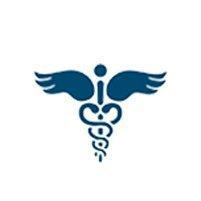Diverticular Disease Specialist

Colon and Rectal Surgery of Manhattan, P.C.
Colorectal Surgeons & Proctologists located in Manhattan, New York, NY
Diverticular disease can cause complications when left untreated. Thankfully, the doctors at Colon and Rectal Surgery of Manhattan are expertly trained to diagnoses and care for these conditions. New York City, NY patients can receive the treatment they need at the Manhattan located practice.
Diverticular Disease Q & A
What is a diverticular disease?
Diverticular disease is used to describe three conditions which cause the growth of small sacs or pockets in the walls of the colon. They are diverticulosis, diverticular bleeding, and diverticulitis.
What is diverticulosis?
Diverticulosis causes several small pockets, known as diverticula, to grow within the bowel lining. Diverticula can range in size from that of a pea to much larger. These growths are caused when weakened areas of the intestinal walls are put under increased pressure from gas, liquid, or waste. Diverticula can occur when straining during a bowel movement. They are most frequent in the sigmoid colon. Diverticulosis can occur in 10% of people over the age of 40 and in 50% of individuals over 60.
What is diverticular bleeding?
Diverticular bleeding occurs when the small blood vessels next to the diverticula are damaged.
What is diverticulitis?
Diverticulitis occurs when the diverticula become swollen and infected. This can affect one or more diverticula. It occurs when the diverticula become clogged with waste and bacteria build up inside them, causing an infection.
What are the symptoms of diverticulosis?
Diverticulosis does not usually cause any symptoms. The doctor can determine a person has the condition through a screening exam.
What are the symptoms of diverticulitis?
Diverticulitis can occur abruptly. Symptoms of diverticulitis can include:
- Rotating diarrhea and constipation
- Painful cramps or discomfort in the lower abdomen
- Chills and/or fever
To ensure that any stomach problems are treated right away, it will be important to visit the doctor if you notice any changes or if you have a family history of abdominal conditions.
How is diverticulosis treated?
Individuals who have diverticulosis without symptoms do not need a specific treatment, but it will be important to stick to a high-fiber diet. This can keep other diverticula from developing. If the condition gets worse and diverticulitis occurs, antibiotics and other medications will usually be prescribed.
How can diverticulosis be prevented?
To prevent diverticular disease or to minimize problems, make sure you are practicing good bowel habits. Do what you can to prevent constipation and do not strain during bowel movements. Eating the right amounts of the right types of fiber, drinking enough water, and exercising regularly will assist to keep the bowels regulated.
Accepted Insurance Plans
Our practice accepts most major insurance plans and most of the smaller insurance plans. If we do not participate with your insurance and your plan allows out of network benefits, our office staff will assist you with the necessary paperwork so you can receive reimbursement directly from your insurance company. If you do not see your insurance listed below, please call the office to speak with one of our knowledgeable staff members about your individual coverage.















